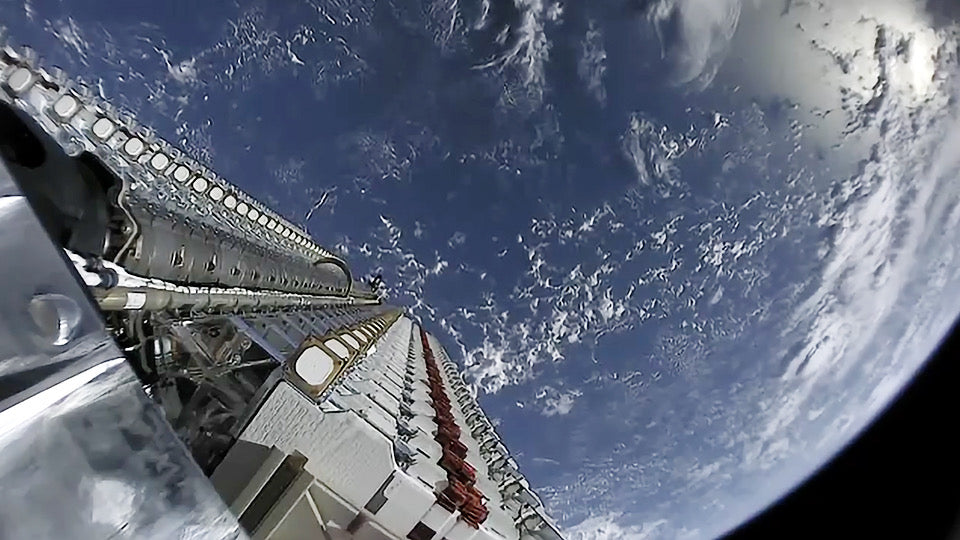Starlink is a global satellite system being deployed by SpaceX which ultimately seeks to provide Internet access worldwide. The system works by syncing thousands of satellites that from a shell surrounding the planet working in junction with numerous ground based transceivers.
The initial launch back in February was followed by 2 additional launches bringing the total number of satellites currently deployed to 122. There are two more launches planned in 2019 code named Starlink 2 and 3 that each respectively will add another 60 satellites to the growing network. The current plan has launches scheduled every two weeks until approximately 12,000 satellites are operational by the middle of the 2020s. SpaceX has estimated that Starlink will cost in excess of $10 billion USD.
On October 22 SpaceX CEO Elon Musk successfully posted a tweet indicating that he was attempting it through the Starlink system.
The current major goal is to get up to 1,800 satellites which would be sufficient to being offering the internet service to consumers.
SpaceX is anticipating to make more than $30 billion USD in revenue by the middle of the coming decade according to leaked internal documents.
Starlink has recently made headlines when several astronomers voiced their disapproval over the system. Their primary concerns are that the satellites are extremely bright and interfere with ground based observatories ability to function properly.
Professor of Astronomy at Smith College James Lowenthal stated in a New York Times article that "If there are lots and lots of bright moving objects in the sky, it tremendously complicates our job,". Lowenthal's thought is that as more constellations of satellites are deployed there will be a time where conducting ground based astronomy will not be possible.
Several other companies including Amazon and Samsung have announced that they will be following in SpaceX's footsteps and have plans to launch their own Satellite internet constellations.



